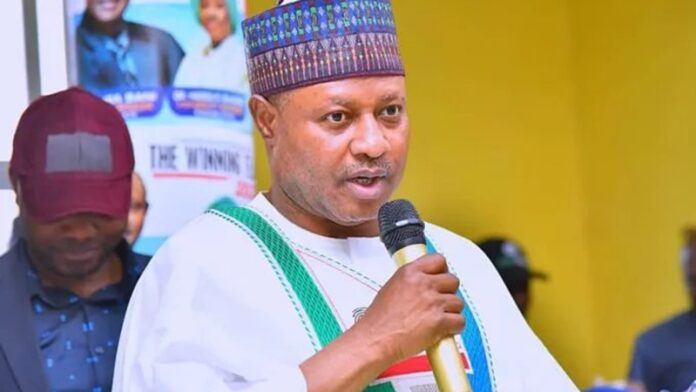Nasir Dambatta
For two straight years, Governor Uba Sani has resisted the easy route of borrowing, instead opting for a loan-free governance model that has kept Kaduna State afloat despite immense fiscal headwinds.
When he assumed office on May 29, 2023, the state was saddled with $587 million in foreign debt, ₦85 billion in domestic liabilities, and 115 ongoing contractual obligations—all inherited. Contrary to swirling assumptions by some critics, Governor Sani has not added a single new loan to that burden.
Yet, the debt service bills have ballooned—not due to fresh loans, but because the exchange rate has spiked from ₦415–₦480 to over ₦1,600 per dollar. Debts taken in dollars now cost more than triple to repay in Naira. In March 2024, Kaduna State spent a staggering ₦7 billion out of its ₦10 billion federal allocation servicing foreign debts, leaving just ₦3 billion to run the entire state—far short of the ₦5.2 billion monthly wage bill alone. On top of that, Zenith Bank deducts ₦800 million monthly from the state’s Internally Generated Revenue (IGR) to service domestic debts, further tightening the noose.
Rather than panic, Governor Sani has embraced transparency and reform. He slashed his own salary by half, cut perks for political appointees, and refused to procure new government vehicles. His administration has also rolled out a five-year fiscal strategy aimed at boosting internal revenue and enforcing spending discipline.
Despite the debt load, Kaduna has moved forward. Over 25% of the state’s 2024 budget was allocated to education. The health sector got a 15% boost, and critical infrastructure work has continued across the state. A ₦500 million low-interest loan scheme for civil servants and strategic foreign partnerships—including a $28 million grant from the Kuwait Fund to tackle out-of-school children—are all testaments to a leadership committed to growth without recklessness.
Governor Uba Sani’s refusal to borrow is not just a fiscal decision—it is a bold governance statement. It proves that with discipline and vision, a state can grow, even under the weight of inherited debt.
So, what is the point at issue? Significantly, many of the huge loans obtained by the previous administration under Malam Nasir El-Rufai were structured with moratorium periods—delaying repayment obligations until after his tenure. This means that the heavy debt servicing now draining Kaduna State’s finances only began when Governor Uba Sani assumed office, placing the burden squarely on his administration despite not contracting the loans.
Permit me to recall the famous quote of John C. Maxwell, a Leadership Expert: “A leader is one who knows the way, goes the way, and shows the way—even when the road is uphill.”
*Dambatta is senior special assistant to the governor on print media























































